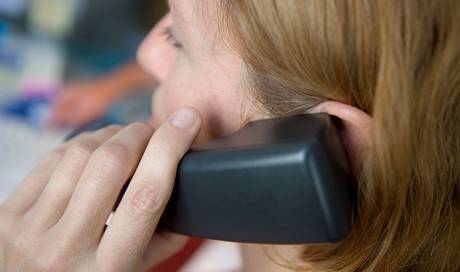Katrin Egloff has been working for Dargebotene Hand Zurich for 16 years, to which people call 143 to talk anonymously and confidentially about problems. The time around Christmas is always full of conflicts, says Egloff. “But now people are thrown back even more because Corona means fewer distractions and fewer contacts are possible. That bothers people. ” The consequences are often increased alcohol and drug consumption, but also increased suicidal thoughts.
It was also noticeable that health care workers reported to Dargebotene Hand in Zurich over the festive season, feeling that they were overloaded. But patients from clinics and old people’s homes also called more and more, according to Egloff. They felt lonely.
In addition, Corona has created new areas of family conflict: As an example, Egloff names the grandmother who, for fear of Corona, did not want to have a son at Christmas because the grandson would have been there too – which made the son feel dabbed. Or the topic of wearing masks during the Christmas party with the family.
On behalf of the Federal Office of Public Health, Dargebotene Hand increased its staff over the festive season, as it did in the spring lockdown, in order to have more time for people in crisis situations.
Social life shifted to the virtual world
Contrary to popular belief, crisis escalations tend to occur less often over Christmas and New Year. According to studies, there are fewer suicide attempts during this time than usual. And the Zurich canton police have no indications that anything has changed this time, as a police spokesman said on request.
But in the longer term, the pandemic will have a psychological impact, says Marc Stutz, spokesman for the Psychiatric University Clinic Zurich (PUK). In the PUK’s child and adolescent psychiatry, there have been a good 40 percent more emergency contacts since last summer than in the previous year.
“The pandemic is a stress factor that exacerbates existing problems,” said Stutz. It has also reinforced the trend, which has existed for years, of an increase in psychological problems among young people. The stress factor pandemic has now been added to the stress at school, among other things. And there is often a lack of structures and what otherwise creates psychological balance for many young people: parties, going out, contacts with people of the same age, for example in sports clubs. The social life of young people has shifted to the virtual world.
During the lockdown in spring, when social life largely came to a standstill, the number of PUK patients fell sharply. Slowing down everyday life apparently reduced stress at the time. But since the easing in early summer, the clinic has been heavily occupied again. The number of cases in adult psychiatry is no higher than usual.
“The pandemic is not only threatening”
The pandemic could trigger different reactions in mentally pre-stressed people: from anxiety and depressive illnesses to psychotic misunderstanding of reality to addictive behavior.
How it works out in the long term depends heavily on its duration and the economic consequences. “We know from research that unemployment is a dramatic psychological burden, which among other things leads to increased suicidality,” says PUK spokesman Stutz.
So far, however, according to Sebastian Haas, President of the Forum for Suicide Prevention and Suicide Research Zurich, there is no evidence that the suicide rate in the canton of Zurich has increased since the beginning of the corona pandemic.
He does not want to commit to a prognosis. However, it is clear that the economic consequences of the pandemic are often also a psychological burden on people. “But you shouldn’t be too pessimistic,” says Haas, who works as the deputy medical director of the Hohenegg private psychiatric clinic in Meilen. Corona also leads to families moving closer together – even if it is via the Zoom meeting. “The pandemic is not only threatening, it is also slowing down. Many say they are doing better in the home office than usual. “
– .


